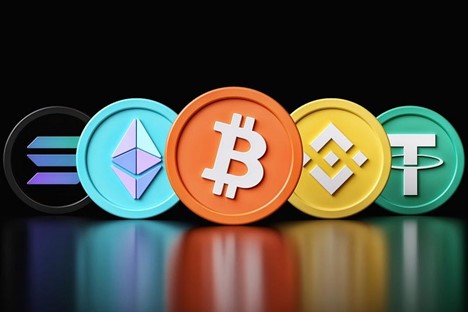Nigeria Records $59 Billion in Cryptocurrency Transactions from July 2023 to June 2024

Nigeria has emerged as a frontrunner in the global sphere of cryptocurrency usage.
The Chainalysis Global Adoption Index positions the West African country at the impressive second-place ranking, revealing that Nigeria conducted approximately $59 billion worth of cryptocurrency transactions from July 2023 to June 2024.
In Nigeria, 85% of the inbound crypto transfers are valued at under $1 million. These transactions, primarily comprising retail and business exchanges, constitute the bedrock of the nation’s thriving crypto engagement.
Chainalysis reports indicate that stablecoins command a significant 43% portion of the transaction volume within Sub-Saharan Africa’s cryptocurrency market. Nigeria’s high inflation rates coupled with the deterioration of the naira, which experienced a record depreciation in February 2024, are pivotal factors propelling the embrace of stablecoins in the country.
Rob Downes, the Chief of Digital Assets at ABSA Bank CIB, an eminent banking institution operational across 12 African countries, cited the pervasive foreign exchange crisis as a major influence on the continent’s stablecoin adoption. Chris Maurice, the CEO and a Co-Founder of Yellow Card, conveyed that approximately 70% of African businesses encounter significant challenges in securing the necessary forex for their operations. As the naira’s value plummets, stablecoins are becoming a viable alternative in Nigeria.
Maurice also emphasized, “The government and banks are strapped for cash, and even with funds, the likelihood of them disbursing it is slim.”
“We’re witnessing a paradigm shift as people realize the practical applications of cryptocurrency in everyday transactions, moving away from the previous perception of it as merely a quick profit opportunity,” remarked Moyo Sodipo, the Chief Operating Officer and Co-Founder of Busha, a crypto exchange serving the Nigerian market.
Stablecoins are increasingly becoming the preferred choice for conducting small to mid-size financial exchanges, showcasing their growing acceptance. Despite the continued value and substantial investments in Bitcoin and other altcoins, stablecoins and the DeFi sector are gaining considerable traction in Nigeria.
For Nigerians who remit funds internationally, stablecoins provide a more cost-effective and efficient alternative to conventional remittance services. Sodipo notes, “Stablecoins streamline and economize cross-border remittances in Nigeria. They offer speed and affordability.”
The surge in DeFi adoption across Sub-Saharan Africa aligns with this trend, with Nigeria assuming a leading role and reaping over $30 billion from DeFi offerings within the previous year.
Amid volatile national currencies and constrained access to solid currencies, dollar-pegged stablecoins like Tether and USDC have witnessed increased popularity. They empower individuals and businesses to preserve value, facilitate international payments, and enhance cross-border trading.
Another boost to this momentum was provided by the central bank’s revocation, in December 2023, of the prohibition on banks engaging with cryptocurrency firms. “The revocation has paved the way for cooperative ventures and more streamlined transactions,” asserted Sodipo.
June 2024 marked the launch of the Accelerated Regulation Incubation Program (ARIP) by the Nigerian Securities and Exchange Commission (SEC). This initiative mandates that virtual asset service providers (VASPs) register and pass through an evaluative period to earn comprehensive authorization.
With an optimistic perspective toward ARIP, the sector anticipates that it represents a departure from ambiguity and progression towards coherent regulatory frameworks, as per Sodipo’s comments.
Source link
#Nigerias #crypto #dealings #hit #Billion #July #June








